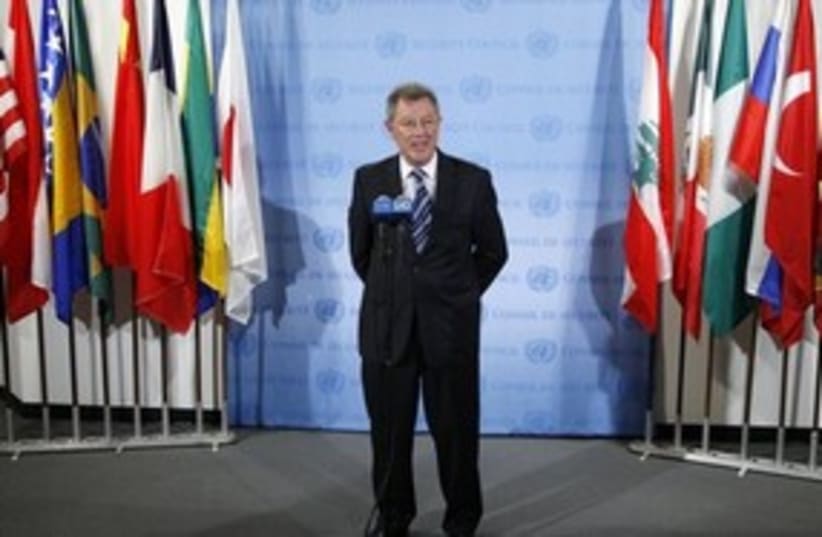RELATED:Fayyad says he's determined to end Fatah-Hamas splitPM: ‘If Syria wants peace, we will be a genuine partner’
"I hope very soon the Quartet envoys will be meeting separately with the parties — that is something new," he told reporters after briefing the UN Security Council. "We are at the moment seeking confirmation from both sides that they are willing to meet the Quartet envoys next week in Brussels."Serry said the separate meetings would precede a meeting of Quartet leaders in mid-March, "probably in the margins of a meeting in Paris."He again warned the council that "the credibility of the international community including the Quartet" is at stake in 2011.Serry said it is urgent that the Quartet respond and "engage the parties in serious talks, including on substance, and support them in finding ways back to the negotiation table."The United States has tried but failed to get the two sides back to face-to-face negotiations that would culminate in a peace settlement and the establishment of a Palestinian state.Both sides have agreed to US President Barack Obama's target date of September 2011 for an agreement, but negotiations collapsed weeks after they restarted in September because Israel ended a 10-month moratorium on settlement construction.With many Mideast countries preoccupied by anti-government protests, Serry said the Israelis and Palestinians may want to wait to see "what kind of a new Middle East" emerges.But he said "we want to hold the parties to their commitment to reach an agreement by September."Asked what the Quartet could do that the United States and its mediator George Mitchell couldn't do to revive negotiations, Serry said, "I believe we can help the parties by bringing some suggestions to them which could be a basis for those negotiations."He refused to provide any details of the suggestions saying the Quartet wants to discuss them first with the Israelis and Palestinians.As the only Quartet envoy actually based in the Mideast, Serry said he sees developments on the ground that can complicate a two-state solution.Therefore, he said, the mediators must stress the urgency of finding a solution because "the two-state solution is not a solution that is going to be there forever ... and I think the Quartet as a whole has a responsibility here."
